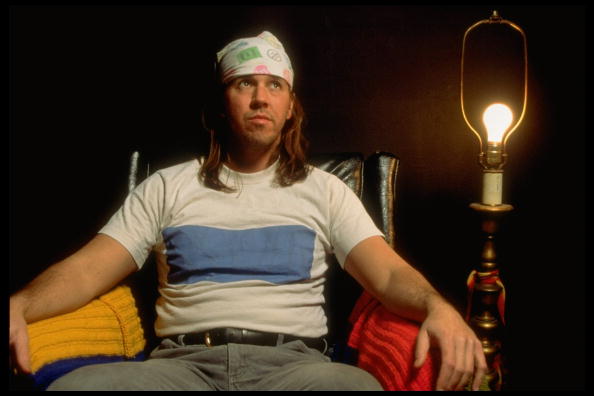
David Foster Wallace, who has brought us gems such as This is Water and insights into ambition and perfectionism, was the guest editor of the 2007 edition of Best American Essays.
His introduction explores why pre-formed positions are so appealing and how the role of having people decide for us has no clear alternative.
Commenting on how essays and other pre-packaged models of thinking help us deal with information and stimuli overload, Wallace writes:
Part of our emergency is that it’s so tempting to do this sort of thing now, to retreat to narrow arrogance, pre-formed positions, rigid filters, the “moral clarity” of the immature.
The alternative is dealing with massive, high-entropy amounts of info and ambiguity and conflict and flux; it’s continually discovering new areas of personal ignorance and delusion. In sum, to really try to be informed and literate today is to feel stupid nearly all the time and to need help.
That’s about as clearly as I can put it … That last one’s of especial value, I think. As exquisite verbal art, yes, but also as a model for what free, informed adulthood might look like in the context of Total Noise: not just the intelligence to discern one’s own error or stupidity, but the humility to address it, absorb it, and move on and out therefrom, bravely, toward the next revealed error.
This is probably the sincerest, most biased account of “best” your decider can give: these pieces are models — not templates, but models — of ways I wish I could think and live in what seems to me this world.
And commenting on the role of Google and curators alike as deciders for us Wallace writes:
I suspect that part of why ‘bias’ is so loaded and dicey a word just now — and why it’s so much-invoked and potent in cultural disputes — is that we are starting to become more aware of just how much subcontracting and outsourcing and submitting to other Deciders we’re all now forced to do, which is threatening (the inchoate awareness is) to our sense of ourselves as intelligent free agents. And yet there is no clear alternative to this outsourcing and submission. It may possibly be that acuity and taste in choosing which Deciders one submits to is now the real measure of informed adulthood. Since I was raised with more traditional, Enlightenment-era criteria, this possibility strikes me as consumerist and scary … to which the counterargument would be, again, that the alternatives are literally abysmal.
Still Curious? Check out the best book on the art of writing.
This piece originally appeared on Farnam Street.
Join over 60,000 readers and get a free weekly update via email here.
5 Horrible Habits You Need to Stop Right Now





More Must-Reads From TIME
- The 100 Most Influential People of 2024
- Coco Gauff Is Playing for Herself Now
- Scenes From Pro-Palestinian Encampments Across U.S. Universities
- 6 Compliments That Land Every Time
- If You're Dating Right Now , You're Brave: Column
- The AI That Could Heal a Divided Internet
- Fallout Is a Brilliant Model for the Future of Video Game Adaptations
- Want Weekly Recs on What to Watch, Read, and More? Sign Up for Worth Your Time
Contact us at letters@time.com